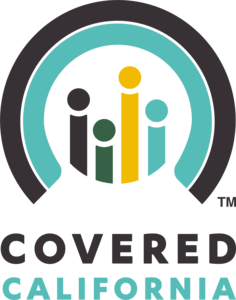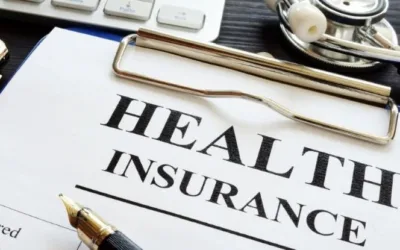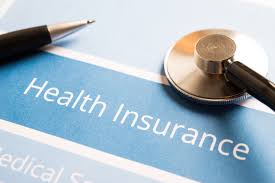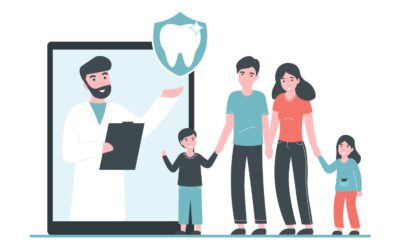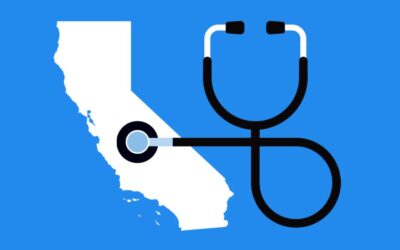
The Importance of Regular Preventive Health Checkup
Preventative care is the cornerstone of maintaining optimal health and well-being. It involves a proactive approach to healthcare, emphasizing regular check-ups, screenings, and lifestyle choices to prevent illnesses before they start. By catching potential health issues early or avoiding them altogether, we can significantly reduce the risk of developing chronic diseases that are often costly and difficult to treat.
- Early Detection and Prevention: Regular health check-ups provide an opportunity for early detection of potential health issues. Many serious illnesses, such as cancer or cardiovascular diseases, can be better managed or even prevented when identified in their early stages. Through routine screenings, medical professionals can identify risk factors and intervene before problems become more severe. With the assistance of health insurance, individuals can undergo a range of preventive tests, including mammograms, blood pressure checks, cholesterol screenings, and vaccinations.
- Personalized Healthcare: One of the key benefits of regular check-ups is the ability to establish a relationship with a primary care physician. This enables the development of a comprehensive medical history and a better understanding of individual health needs. Health insurance facilitates ongoing access to primary care physicians, allowing patients to receive personalized healthcare advice and guidance tailored to their unique circumstances.
- Financial Protection and Affordability: Health insurance acts as a crucial safety net, providing financial protection against unexpected healthcare expenses. Regular health check-ups and preventive care services are typically covered by insurance plans, often at little to no cost for the insured. This reduces financial barriers to seeking care and encourages individuals to prioritize their health on a regular basis. In the long run, preventive care can save both individuals and the healthcare system significant costs by minimizing the need for expensive treatments and interventions.
- Access to a Network of Providers: Health insurance offers access to an extensive network of healthcare providers, including doctors, specialists, hospitals, and clinics. By having insurance coverage, individuals gain the flexibility to choose the providers that best meet their needs. This ensures that individuals can find a suitable healthcare professional who understands their medical history and can coordinate their preventive care effectively.

Navigating Health Screenings: A Roadmap for Every Age and Gender
Health screenings are tailored to various factors, including age, gender, and medical history. For infants and children, pediatricians focus on growth and developmental milestones, along with immunizations and hearing and vision checks. Adolescents may require scoliosis screenings, while adults should begin routine checks for blood pressure, cholesterol levels, and cancer screenings, such as mammograms for women and colonoscopies for both genders, at recommended ages. Each screening serves as a pivotal checkpoint in one’s health journey, providing early detection of issues that are more easily treated when caught early.
Immunizations: Safeguarding Health at Every Stage
Vaccinations are one of the most effective forms of preventative care. From the infant shots that protect against diseases like measles, mumps, and rubella, to the HPV vaccine recommended for teenagers, and the shingles and pneumonia shots often advised for older adults, vaccines are designed to trigger immune responses that guard against future infections. Staying up to date with vaccinations is a key defense strategy in the public health arsenal, protecting not just individuals but communities at large.
Crafting a Healthier Tomorrow: The Pillars of a Healthy Lifestyle
Beyond screenings and vaccinations, the choices we make daily play an influential role in our long-term health. A balanced diet rich in fruits, vegetables, lean proteins, and whole grains can help ward off heart disease, diabetes, and certain cancers. Regular physical activity, whether it’s a brisk walk, a dance class, or a bike ride, strengthens the heart and lungs, improves mental health, and enhances overall quality of life. Combined with other smart choices like not smoking, moderate alcohol consumption, and adequate sleep, these lifestyle habits are powerful tools in the preventive care toolkit.
By integrating these elements into our lives, we actively contribute to our health narrative. Preventative care is not just about medical appointments; it’s a holistic approach that interweaves the medical, the behavioral, and the environmental aspects of our lives to create the best outcomes for our health.

Proactive Management of Chronic Conditions: A Lifeline for Sustained Wellness
Chronic conditions such as diabetes, hypertension, and heart disease can have a profound impact on an individual’s quality of life. Regular check-ups play a vital role in managing these conditions effectively. Through consistent monitoring, healthcare providers can track the progress of diseases, adjust medications, and recommend lifestyle adjustments to better control and manage the condition. This vigilant approach can lead to fewer complications, a reduction in the severity of the illness, and ultimately, a longer, healthier life.
Mental Health Screening: The Unseen Pillar of Preventative Care
Often overlooked, mental health is as critical as physical health in a preventative care strategy. Regular mental health screenings can detect early signs of stress, depression, anxiety, and other mental health disorders. Early intervention is key, as it can lead to more effective treatment and better outcomes. Incorporating stress management techniques, therapy, or medication as part of routine care can vastly improve one’s overall well-being.
Pediatric Vigilance: Nurturing the Future Through Children’s Health
Children’s health check-ups are fundamental for ensuring the healthy development of our youngest generation. These visits encompass immunizations, which protect against a variety of diseases, and developmental screenings that assess a child’s growth, behavior, and learning. Identifying potential issues early on paves the way for prompt intervention, which is often more successful at an early age.
Women’s Health: Tailored Care for Every Stage of Life
Preventative care for women includes specialized screenings such as mammograms and Pap smears, which are crucial in the early detection of breast and cervical cancers. Additionally, osteoporosis screenings are important as women age, due to their increased risk of bone density loss. Regular check-ups provide opportunities for education on self-exams and discussions about reproductive health, ensuring that women are equipped with knowledge and resources to support their health journey.
Men’s Health: Prevention in Focus
For men, specific preventative measures such as prostate exams and testicular cancer screenings are important. These screenings can detect issues at stages where they are most treatable. Educating men on the symptoms to watch for and normalizing the conversation around these vital health checks can increase early detection rates and improve prognoses.
Honoring the Golden Years: Senior Health Considerations
As individuals transition into their senior years, preventative care adapts to the changing needs. Fall prevention becomes paramount, as falls can lead to significant injuries. Regular memory screenings can signal the early stages of cognitive decline, allowing for early management strategies. Vision and hearing tests are also essential, as losses in these senses can lead to isolation and decreased quality of life. By addressing these aspects, preventative care for seniors can mean the difference between independence and dependence.

Decoding Health Insurance: Ensuring Your Preventative Care is Covered
Navigating health insurance coverage can be complex, yet understanding your benefits is essential for making the most of preventative care services. Most health insurance plans, including those provided by Covered California, typically cover an array of preventative services without copayments or coinsurance. This often includes annual physicals, screenings for blood pressure, cholesterol, and diabetes, as well as cancer screenings and vaccinations. However, it’s important to check your specific plan details, as coverage can vary. Familiarize yourself with your benefits to ensure you receive the preventative care you’re entitled to without unexpected expenses.
Maximizing Your Check-Up: Preparation is Key
To get the most out of your check-up, preparation is crucial. Before your appointment, compile a list of any health concerns, symptoms, or questions you have. Bring a record of your family’s medical history, which can provide crucial information for your own health assessment. Don’t hesitate to ask your doctor to clarify the purpose of tests and what they entail. After your visit, make sure you understand your results and the next steps, if any are needed. Knowledge is power, and being informed puts you in control of your health journey.
Beyond the Appointment: Follow-Up and Future Health Planning
The value of a check-up extends far beyond the visit itself. Follow-up care is essential, especially if screenings reveal areas of concern. Adhering to prescribed treatments, scheduling recommended additional tests, or attending specialist visits are all critical steps. Additionally, use the information gained during your check-up to inform your long-term health planning. Set realistic goals, whether it’s improving your diet, increasing physical activity, or managing stress, and work with your healthcare provider to create a sustainable plan for a healthy future.
Empowerment Through Resources: Your Support Network
A wealth of resources is available to those seeking further information on preventative care. Health websites, patient advocacy groups, and local community centers can offer additional guidance on health maintenance. For those in need of affordable preventative services, community clinics and health centers often provide care on a sliding scale based on income. Remember, support groups and online forums can also serve as a valuable support network, offering encouragement and advice from individuals with similar health concerns.
Ultimately
Preventative care is an essential part of maintaining a healthy and fulfilling life. By understanding what your health insurance covers, preparing for your check-ups, engaging in follow-up care, and utilizing available resources, you are taking significant steps toward taking charge of your health. Remember, prevention is always better than cure. By taking proactive measures today, you are paving the way for a healthier tomorrow. Stay informed, stay prepared, and let’s make health a priority together. Your journey to wellness is a continuous one, and with the right knowledge and support, you can navigate it with confidence.
This article was written by Mark Svetlik, with the assistance of automation technology. The content has undergone thorough editing and fact-checking to ensure complete accuracy.
